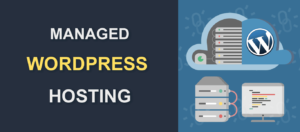WordPress is a powerful Content Management System (CMS) that has taken the world by storm. It is the most popular platform for building websites, with over 43% of all websites on the internet running on WordPress. In this blog, we will take an in-depth look at WordPress and explore its features, benefits, and how it has become the go-to platform for web development.
What is WordPress?
WordPress is a free, open-source CMS that was first released in 2003. It was originally created as a blogging platform but has since evolved into a full-fledged CMS that can be used to build any type of website, from e-commerce stores to personal blogs. WordPress is written in PHP and uses a MySQL database to store content.
WordPress is available in two versions: WordPress.com and WordPress.org. WordPress.com is a hosted version of WordPress that allows users to create a website without the need for hosting or server management. WordPress.org is a self-hosted version of WordPress that requires users to download the software and install it on their own web hosting server.
Features of WordPress
WordPress is packed with features that make it easy to use and customize. Here are some of the key features of WordPress:
- Themes: WordPress has a vast library of themes that can be used to change the look and feel of a website. There are thousands of free and premium themes available, and users can also create their own custom themes.
- Plugins: WordPress has a large library of plugins that can be used to add functionality to a website. Plugins can be used for things like contact forms, social media sharing, e-commerce, and more.
- Customization: WordPress is highly customizable, and users can customize everything from the colors and fonts to the layout and functionality of their website.
- SEO: WordPress is SEO-friendly and includes features like customizable permalinks, meta descriptions, and title tags that help websites rank higher in search engine results.
- Mobile responsiveness: WordPress themes are designed to be mobile-responsive, which means they will adjust to fit the screen size of any device.
- Multilingual support: WordPress supports multiple languages, which makes it easy to create a website in different languages.
Benefits of WordPress
WordPress has many benefits that make it a popular choice for web development. Here are some of the key benefits of using WordPress:
- Easy to use: WordPress is user-friendly and easy to use, even for beginners. The platform has a simple interface and intuitive navigation that makes it easy to create and manage a website.
- Flexibility: WordPress is highly flexible and can be used to create any type of website, from small blogs to large e-commerce stores.
- Community support: WordPress has a large community of developers and users who contribute to the platform by creating themes, plugins, and providing support.
- Cost-effective: WordPress is a cost-effective solution for web development, as it is free to use and only requires hosting and domain registration fees.
- Security: WordPress is a secure platform that is constantly updated to address any security vulnerabilities. There are also plugins available that can be used to enhance website security.
- SEO-friendly: WordPress is SEO-friendly and includes features that make it easy to optimize a website for search engines.
How to Get Started with WordPress
Getting started with WordPress is easy. Here are the steps to follow:
- Choose a hosting provider
WordPress requires hosting to store website files and content. There are many hosting providers to choose from, including Bluehost, Hostinger, GoDaddy, eChoice WebHosting, SiteGround, and WP Engine.
- Install WordPress
Once you have chosen a hosting provider, you can install WordPress on your hosting account. Many hosting providers offer one-click installation of WordPress.
- Choose a theme
Once WordPress is installed, you can choose a theme for your website. WordPress has thousands of free and premium themes to choose from, and you can also create your own custom theme.
- Install plugins
You can enhance the functionality of your website by installing plugins. WordPress has a large library of plugins that can be used for things like contact forms, social media sharing, e-commerce, and more.
- Customize your website
Once you have installed a theme and plugins, you can customize your website to fit your needs. You can change the colors and fonts, add or remove pages, and customize the layout and functionality of your website.
- Add content
Finally, you can add content to your website. This can include blog posts, pages, images, and videos.
Tips for Using WordPress
Here are some tips for using WordPress:
- Keep WordPress and plugins updated: WordPress and plugins should be updated regularly to ensure security and functionality.
- Choose a reliable hosting provider: Choosing a reliable hosting provider is important for website speed and uptime.
- Use a mobile-responsive theme: A mobile-responsive theme is important for website usability on mobile devices.
- Use plugins wisely: Installing too many plugins can slow down your website and cause security vulnerabilities.
- Optimize your website for speed: A fast website is important for user experience and search engine optimization.
Conclusion
WordPress is a powerful CMS that has become the go-to platform for web development. It is easy to use, flexible, and customizable, and has many benefits that make it a popular choice for building websites. With a vast library of themes and plugins, and a large community of developers and users, WordPress is a platform that can be used to create any type of website, from small blogs to large e-commerce stores. If you are looking for a powerful and flexible platform for your website, WordPress is the way to go.
